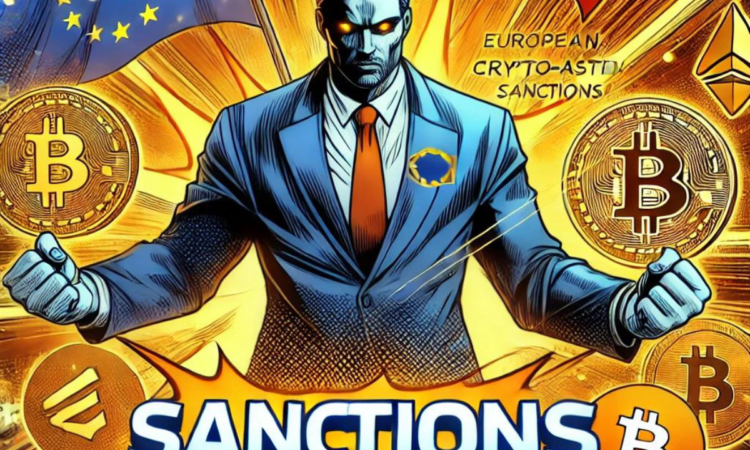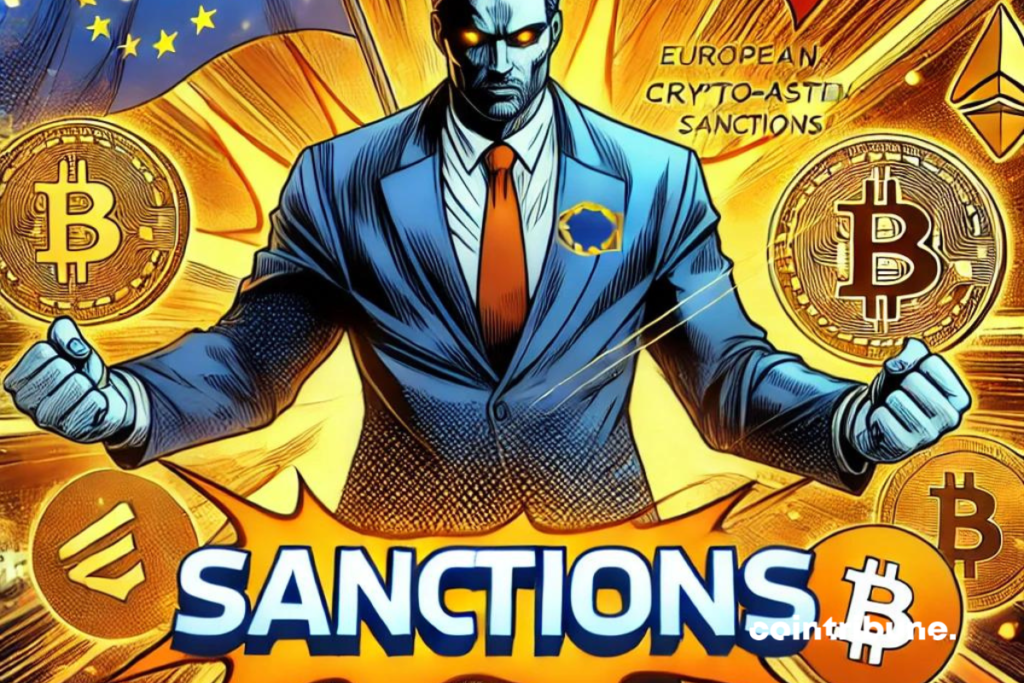
Wed 26 Jun 2024 ▪
5
min of reading ▪ by
The European Union is not known for doing things halfway, especially when it comes to economic sanctions. This time, the goal is clear: to put pressure on the Kremlin by targeting its crypto infrastructure and alternative financial means. It’s a real blow to Russia, whose repercussions could be felt far beyond European borders.

The EU targets crypto asset providers
The latest European Union sanctions directly target eurozone operators engaging with crypto asset providers facilitating transactions in favor of the Russian defense effort.
This is about a total ban on these interactions, a drastic measure intended to cut off the financial resources supporting the Kremlin’s war machine.
This decision marks a new stage in the economic war the EU is waging against Russia. By banning these transactions, the EU hopes to dry up the financial flows that fuel Russian military capabilities. Crypto asset providers thus find themselves in the crosshairs, forced to comply or face severe consequences.
But that’s not all. The new sanctions also include a ban on using SPFS, the financial message transfer system developed by Russia to circumvent the exclusion from SWIFT.
This ban aims to further isolate Russia from international financial networks, complicating its cross-border transactions even more.
Ban on the Russian SPFS system
SPFS, designed as a Russian alternative to SWIFT, plays a crucial role in Russia’s attempts to mitigate the impact of Western economic sanctions.
By banning European entities from connecting to SPFS, the EU tightens its grip on Russian financial transactions. This ban makes it more difficult for Moscow to use this system to support its military operations.
The EU Council has made it clear that this ban applies to all European operators. This includes those based inside and outside of Russia. Even foreign subsidiaries of European companies must comply with this new regulation or face sanctions.
Indeed, these restrictive measures add to a series of already severe sanctions imposed on Russia since the beginning of its invasion of Ukraine.
The disconnection from SWIFT and the seizure of billions of dollars of Russian funds in the West are some examples of actions aimed at weakening the Russian economy.
Putin’s “dark fleet” in the spotlight
Russia has not given up on its ambitions. Some tactics used to circumvent the sanctions have been particularly ingenious. Among them, the use of “Putin’s dark fleet.” This is a fleet of tankers operating discreetly to continue exporting oil despite the restrictions.
This fleet, accused of helping Russia circumvent the sanctions, is now targeted by the EU. By identifying and sanctioning these ships, the EU wants to make Russia’s operations more difficult. It also aims to reduce its oil revenues, an essential source for funding its war efforts.
The EU Council has announced the identification of 27 ships that are part of this fleet. Indeed, these ships will be subject to specific sanctions. Additionally, 61 new entities have been added to the blacklist for their direct support of the Russian war effort. This illustrates an intensification of efforts to economically isolate Russia.
The European Union, through these radical economic sanctions, sends a clear message. It is determined to use all means at its disposal to put pressure on the Kremlin and reduce its ability to wage war in Ukraine. The target is multiple: from crypto asset providers to the tankers of the “dark fleet,” including the SPFS system.
As Russia continues to seek ways to circumvent these sanctions, the effectiveness of these measures remains to be seen. What is certain is that the EU does not intend to ease the pressure anytime soon. Each new initiative testifies to its willingness to strike hard and in a targeted manner.
The coming months will tell whether these efforts will succeed in bending the Kremlin or if Russia will find new ways to withstand this economic offensive.
Maximize your Cointribune experience with our ‘Read to Earn’ program! Earn points for each article you read and gain access to exclusive rewards. Sign up now and start accruing benefits.
Click here to join ‘Read to Earn’ and turn your passion for crypto into rewards!
Fasciné par le bitcoin depuis 2017, Evariste n’a cessé de se documenter sur le sujet. Si son premier intérêt s’est porté sur le trading, il essaie désormais activement d’appréhender toutes les avancées centrées sur les cryptomonnaies. En tant que rédacteur, il aspire à fournir en permanence un travail de haute qualité qui reflète l’état du secteur dans son ensemble.
DISCLAIMER
The views, thoughts, and opinions expressed in this article belong solely to the author, and should not be taken as investment advice. Do your own research before taking any investment decisions.






